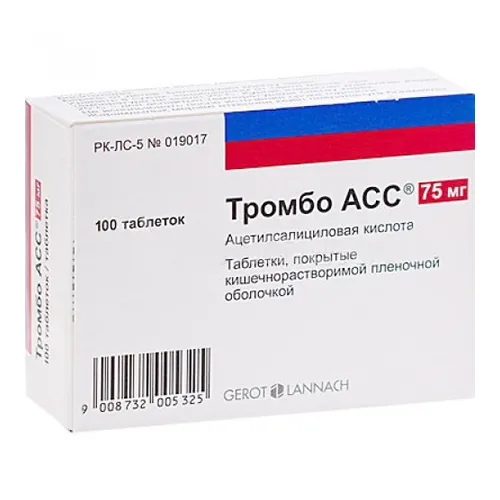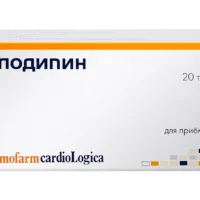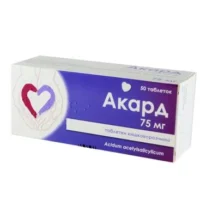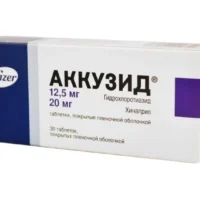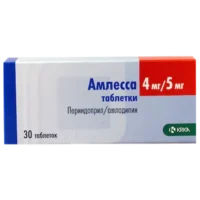Description
Trombo ASS (Acetylsalicylic Acid) Enteric Coated Tablets 75 mg. №30
Ingredients:
Each enteric coated tablet contains 75 mg of acetylsalicylic acid.
Dosage:
The recommended dosage is one tablet (75 mg) daily, or as directed by a healthcare professional.
Indications:
Trombo ASS is indicated for the prevention of cardiovascular events in patients at risk of thrombotic events.
Contraindications:
Do not use Trombo ASS if you are allergic to acetylsalicylic acid or any other ingredients in the product. Consult a doctor before use if you have a history of gastrointestinal ulcers or bleeding disorders.
Directions:
Swallow the tablet whole with a glass of water. Do not crush or chew the tablet. Take with food to reduce the risk of stomach upset.
Scientific Evidence:
Acetylsalicylic acid, the active ingredient in Trombo ASS, is an antiplatelet agent that inhibits the enzyme cyclooxygenase, reducing thromboxane A2 formation and platelet aggregation. This mechanism helps prevent blood clots and cardiovascular events.
Clinical trials, like those by Antithrombotic Trialists’ Collaboration, show acetylsalicylic acid’s efficacy in reducing myocardial infarction, stroke, and vascular death risks in high-risk patients. The enteric coating protects the stomach lining, making it suitable for long-term use.
Additional Information:
- Store Trombo ASS in a cool, dry place away from direct sunlight.
- Avoid alcohol consumption while taking this medication to reduce the risk of stomach bleeding.
- If you miss a dose, take it when remembered. Skip if near the next dose. Do not double dose.

